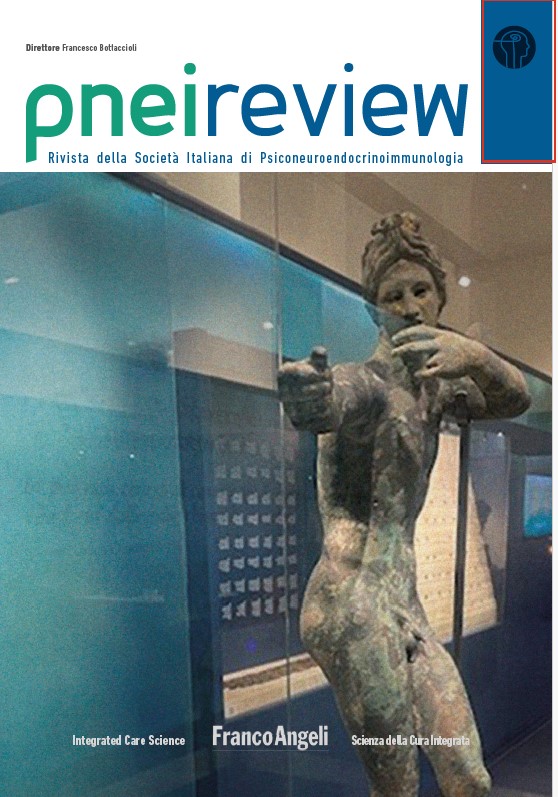Issue 1/2025 Allostasis and traditional Chinese medicine Science and ancient knowledge
Editorial
Articles
- Andrea Minelli, Francesco Bottaccioli, Anna Giulia Bottaccioli, Psyche and Life: Allostasis between the Predictive brain-mind system and Traditional Chinese Medicine
- Massimo Agnoletti, Alessio Fasano, The microbiota’s funnel effect: How multiple factors independently converge in changing the microbiota
- Marcello Romeo, Carbohydrate malabsorption and non-celiac gluten/wheat Sensitivity: The role of probiotic biomodulation
Research
- Viviana Mucci, Carolina Beppi, Enrico Armato, Psycho-Neuro-Endocrine-Immunology and Vestibular Disorders: A Prospective study
- Paolo Migone, The problem of validation of psychotherapy
